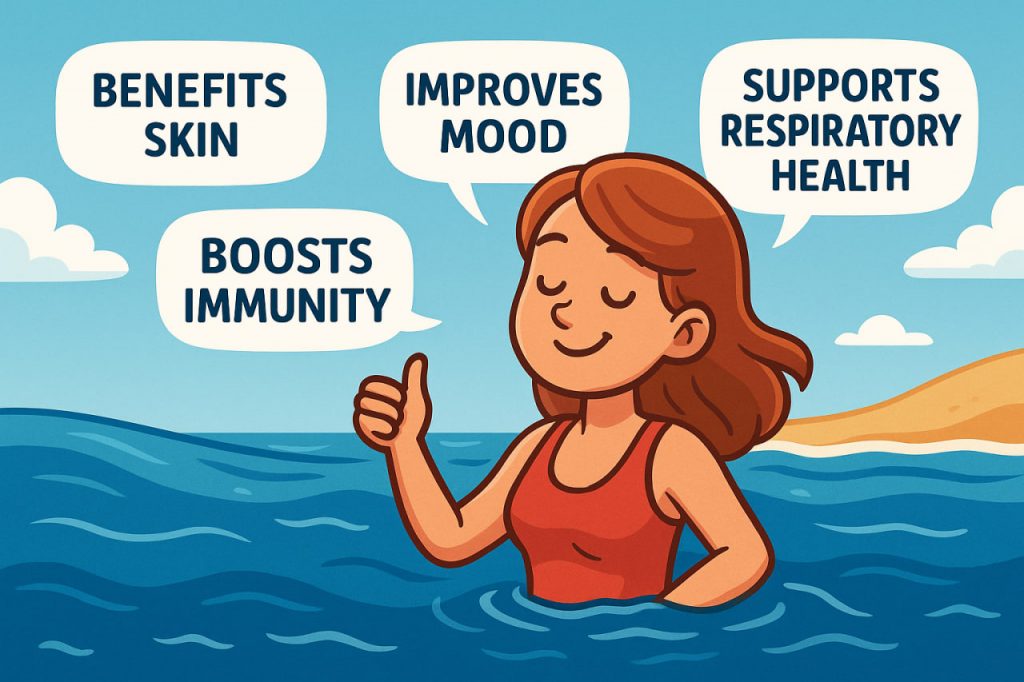Swimming in seawater has been valued for centuries as a natural therapy that combines physical exercise, relaxation, and the healing properties of the ocean. The combination of mineral-rich water, natural buoyancy, and exposure to fresh air provides benefits that go beyond ordinary swimming pools. Many cultures have long recognized the therapeutic value of the sea, and modern science continues to support these claims.
Rich Mineral Content
Seawater is full of minerals such as magnesium, potassium, calcium, and iodine. When you swim, your skin absorbs small amounts of these elements. Magnesium, for example, is known to help with muscle relaxation and stress reduction. Iodine contributes to healthy thyroid function, while calcium supports bones and skin health. This makes swimming in the sea not only refreshing but also nourishing.
Improved Circulation
The natural pressure and resistance of seawater stimulate blood circulation. Cold seawater in particular causes blood vessels to constrict and then expand once you leave the water, which can improve vascular health. Regular swimming in the sea may strengthen the heart and reduce the risk of cardiovascular problems.
Boosting the Immune System
Exposure to seawater and fresh sea air has been linked to better immune function. The ocean environment contains negative ions and trace elements that may help the body fight infections and inflammation. This is why seaside climates are often recommended for people recovering from respiratory illnesses.Stress Relief and Mental Well-being
Stress Relief and Mental Well-being
Swimming in the sea combines physical activity with natural surroundings. The rhythm of waves, the sensation of floating, and the sound of water all promote relaxation. Studies show that spending time in natural blue environments reduces stress hormones, improves mood, and helps fight anxiety and depression.
Skin Benefits
Saltwater has gentle antiseptic properties. It can cleanse the skin, reduce minor infections, and help with certain conditions like eczema or psoriasis. The exfoliating effect of salt also leaves the skin smoother and healthier after swimming.
Low-Impact Exercise
Because of the buoyancy of seawater, swimming puts less strain on the joints and muscles compared to land-based workouts. This makes it especially beneficial for older adults, people with arthritis, or those recovering from injuries. At the same time, it provides a full-body workout, improving endurance, flexibility, and strength.
Conclusion
Swimming in seawater is more than a recreational activity; it is a natural therapy for body and mind. By combining minerals, exercise, and the calming effect of the ocean, it supports cardiovascular health, strengthens the immune system, soothes the skin, and relieves stress. Whether for fitness, healing, or relaxation, the sea offers unique benefits that make it an invaluable part of human well-being.
Glossary
- Minerals – natural elements such as magnesium and calcium that support health.
- Circulation – the flow of blood through the body’s vessels.
- Immune System – the body’s defense against infections and diseases.
- Negative Ions – molecules in the air believed to improve mood and health.
- Antiseptic – a substance that prevents or slows down infections.


